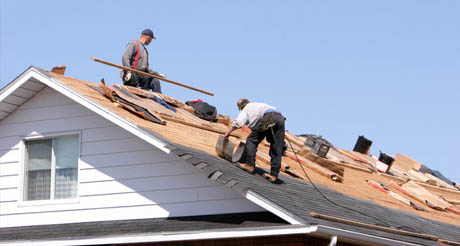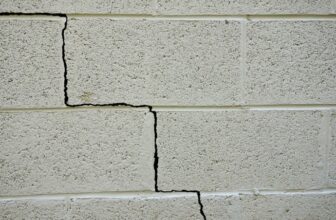
When it comes to the safety and integrity of your home or business, the quality of your roof is of utmost importance. Whether you need roof repairs, maintenance, or a complete replacement, it is crucial to find a reliable and skilled roofing contractor who can deliver exceptional results. However, with so many options available, selecting a good roofing contractor can be a daunting task. This comprehensive guide will walk you through the process of choosing the right professionals for your roofing needs. From evaluating their credentials to assessing their experience, we’ve got you covered with expert tips and advice.
How to Select Good Roofing Contractors
Finding the right roofing contractor can make all the difference in the success of your roofing project. Here are the essential steps you need to follow to ensure you select a good roofing contractor:
1. Conduct thorough research
Before diving into your search for a roofing contractor, it is essential to conduct thorough research. Start by seeking recommendations from friends, family, and neighbors who have recently had roofing work done. Additionally, explore online resources, such as review websites and local directories, to find reputable roofing contractors in your area.
2. Check for proper licensing and insurance
A crucial factor to consider when selecting a roofing contractor is their licensing and insurance. Ensure that the contractor holds the necessary licenses and permits required by your state or local authorities. This step guarantees that the contractor is qualified and meets the industry standards. Moreover, verify that the contractor has liability insurance and workers’ compensation coverage to protect you from any potential liability in case of accidents or damages during the project.
3. Evaluate their experience and expertise
Experience is a vital aspect to consider when selecting a roofing contractor. Look for contractors who have a proven track record and extensive experience in the roofing industry. A contractor with years of experience is likely to have encountered various roofing challenges and can handle any issues that may arise during your project. Furthermore, consider the contractor’s expertise in the specific type of roofing you require, whether it’s shingle, tile, metal, or flat roofing.
4. Review their portfolio and references
To assess the quality of work and professionalism of a roofing contractor, review their portfolio of past projects. Most reputable contractors maintain a portfolio showcasing their previous work, which can give you an idea of their capabilities and craftsmanship. Additionally, ask the contractor for references from previous clients. Reach out to these references to inquire about their experience working with the contractor and the overall satisfaction with the results.
5. Get multiple quotes
Obtaining multiple quotes from different roofing contractors is a crucial step in the selection process. Request detailed quotes that outline the scope of work, materials to be used, project timeline, and cost breakdown. Avoid choosing the contractor solely based on the lowest price. Instead, evaluate the quotes comprehensively, considering the contractor’s reputation, experience, and the quality of materials they propose to use.
6. Check for warranties and guarantees
A good roofing contractor stands behind their work and offers warranties and guarantees for their services. Inquire about the warranties provided by each contractor you are considering. A warranty ensures that the contractor will address any defects or issues that may arise after the completion of the project. A reputable contractor will provide both workmanship and manufacturer warranties for added peace of mind.
7. Assess their communication and professionalism
Effective communication and professionalism are essential qualities of a good roofing contractor. Throughout the selection process, pay attention to how the contractor communicates with you. Are they responsive to your inquiries? Do they provide clear and detailed explanations? A contractor who demonstrates excellent communication skills and professionalism is more likely to deliver a smooth and successful roofing project.
8. Consider local contractors
Choosing local roofing contractors offers several advantages. Local contractors are familiar with the climate, building codes, and regulations of your area. They also have established relationships with local suppliers, ensuring timely delivery of materials. Moreover, selecting a local contractor makes it easier to reach them in case of emergencies or future maintenance needs.
9. Review contracts thoroughly
Before finalizing your decision, carefully review the contract provided by the selected roofing contractor. The contract should include all the details discussed, such as the scope of work, materials, project timeline, payment terms, and warranties. If you have any concerns or questions, don’t hesitate to seek clarification from the contractor before signing the contract.
10. Trust your instincts
Lastly, trust your instincts when choosing a roofing contractor. If something doesn’t feel right or if you have any doubts, it’s best to explore other options. Select a contractor whom you feel comfortable working with, as this will ensure a positive experience throughout the roofing project.
Frequently Asked Questions (FAQs)
Q: How long does a roofing project usually take?
The duration of a roofing project depends on several factors, including the size of the roof, the complexity of the work, and the weather conditions. On average, a roofing project can take anywhere from a few days to a few weeks.
Q: Should I hire a roofing contractor for small repairs?
Even for minor repairs, it is advisable to hire a professional roofing contractor. They have the necessary expertise to assess the extent of the damage and provide appropriate repairs, ensuring that the underlying issues are adequately addressed.
Q: Can I install a new roof over the existing one?
In some cases, it is possible to install a new roof over an existing one. However, this approach is not suitable for all situations. It is best to consult with a roofing contractor who can assess the condition of your current roof and advise you on the best course of action.
Q: What should I do if I notice a leak in my roof?
If you notice a leak in your roof, it is crucial to take immediate action. Start by containing the leak using buckets or tarps to prevent further damage. Then, contact a professional roofing contractor to assess the extent of the damage and provide the necessary repairs.
Q: How often should I have my roof inspected?
Regular roof inspections are essential to identify and address any potential issues before they escalate. It is recommended to have your roof inspected at least once a year, preferably in the spring or fall, to ensure its optimal condition.
Q: What are the signs that indicate the need for a roof replacement?
Several signs indicate the need for a roof replacement, including shingles that are curling, cracked, or missing, excessive granule loss, sagging roof deck, and water stains on the ceiling. If you notice any of these signs, it is advisable to consult with a roofing contractor for a professional assessment.
Conclusion
Selecting a good roofing contractor is a critical decision that can significantly impact the outcome of your roofing project. By following the steps outlined in this guide, conducting thorough research, evaluating credentials and experience, and considering communication and professionalism, you can make an informed choice. Remember to prioritize quality, reliability, and expertise when selecting a roofing contractor to ensure the long-term durability and safety of your roof.




